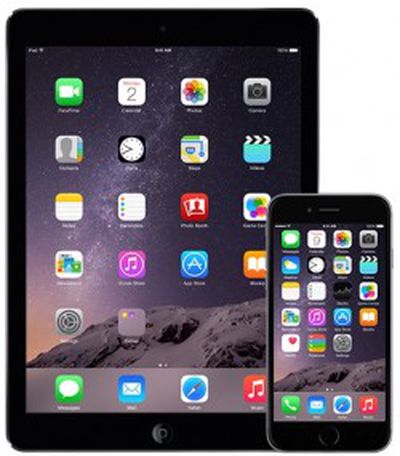U.S. ITC to Investigate Apple After Ericsson Patent Infringement Claims
 The ongoing conflict between Apple and Ericsson escalated this afternoon as the United States International Trade Commission (ITC) agreed to launch an investigation into claims that Apple infringed on as many as 41 of Ericsson's cellular technology patents with its iPad and iPhone devices, reports PCWorld.
The ongoing conflict between Apple and Ericsson escalated this afternoon as the United States International Trade Commission (ITC) agreed to launch an investigation into claims that Apple infringed on as many as 41 of Ericsson's cellular technology patents with its iPad and iPhone devices, reports PCWorld.
Apple and Ericsson first clashed in January, after the expiration of a 2008 licensing agreement between the two companies. Despite two years of negotiations, the companies failed to establish a new agreement that would let Apple use Ericsson's cellular technology patents.
Apple filed a complaint suggesting Ericsson was both demanding excessive royalties for LTE patents and wrongly claiming its patents as essential for the LTE wireless communication standard. Ericsson responded with its own complaint, asking the court to determine whether its licensing fees were fair.
Ericsson's cellular technology patents are considered essential and are subject to fair, reasonable, and non-discriminatory terms (FRAND). According to Ericsson, the licensing deal it offered Apple (estimated to be between $250 million and $750 million annually) was reasonable, but Apple disagreed.
In February, Ericsson went on to file seven new lawsuits against Apple and two complaints with U.S. ITC in an effort to prevent Apple from selling products in the U.S., which is what led to today's ITC investigation. Companies often file complaints in district court and with the ITC simultaneously as the ITC moves faster and has the ability to block products from being sold in the United States. The looming threat of a product ban can accelerate licensing negotiations.
Should the International Trade Commission's investigation find that Apple infringed on Ericsson's patents, it could potentially lead to an exclusion order preventing the infringing products from being sold in the United States until the dispute is resolved.
Popular Stories
The long wait for an Apple Watch Ultra 3 appears to be nearly over, and it is rumored to feature both satellite connectivity and 5G support.
Apple Watch Ultra's existing Night Mode
In his latest Power On newsletter, Bloomberg's Mark Gurman said that the Apple Watch Ultra 3 is on track to launch this year with "significant" new features, including satellite connectivity, which would let you...
Apple's next-generation iPhone 17 Pro and iPhone 17 Pro Max are just over two months away, and there are plenty of rumors about the devices.
Below, we recap key changes rumored for the iPhone 17 Pro models.
Latest Rumors
These rumors surfaced in June and July:Apple logo repositioned: Apple's logo may have a lower position on the back of the iPhone 17 Pro models, compared to previous...
The iPhone 17 Pro Max will feature the biggest ever battery in an iPhone, according to the Weibo leaker known as "Instant Digital."
In a new post, the leaker listed the battery capacities of the iPhone 11 Pro Max through to the iPhone 16 Pro Max, and added that the iPhone 17 Pro Max will feature a battery capacity of 5,000mAh:
iPhone 11 Pro Max: 3,969mAh
iPhone 12 Pro Max: 3,687mAh...
Apple's position as the dominant force in the global true wireless stereo (TWS) earbud market is expected to continue through 2025, according to Counterpoint Research.
The forecast outlines a 3% year-over-year increase in global TWS unit shipments for 2025, signaling a transition from rapid growth to a more mature phase for the category. While Apple is set to remain the leading brand by...
AppleInsider's Marko Zivkovic today shared a list of alleged identifiers for future Mac models, which should roll out over the next year or so.
The report does not reveal anything too surprising, but it does serve as further evidence that Apple is seemingly working on new models of every Mac, including the MacBook Air, MacBook Pro, iMac, Mac mini, Mac Studio, and Mac Pro.
Apple is...
The upcoming iPhone 17 Pro and iPhone 17 Pro Max are rumored to have a slightly different MagSafe magnet layout compared to existing iPhone models, and a leaked photo has offered a closer look at the supposed new design.
The leaker Majin Bu today shared a photo of alleged MagSafe magnet arrays for third-party iPhone 17 Pro cases. On existing iPhone models with MagSafe, the magnets form a...
 The ongoing conflict between Apple and Ericsson escalated this afternoon as the United States International Trade Commission (ITC) agreed to launch an investigation into claims that Apple infringed on as many as 41 of Ericsson's cellular technology patents with its iPad and iPhone devices, reports PCWorld.
The ongoing conflict between Apple and Ericsson escalated this afternoon as the United States International Trade Commission (ITC) agreed to launch an investigation into claims that Apple infringed on as many as 41 of Ericsson's cellular technology patents with its iPad and iPhone devices, reports PCWorld.
















